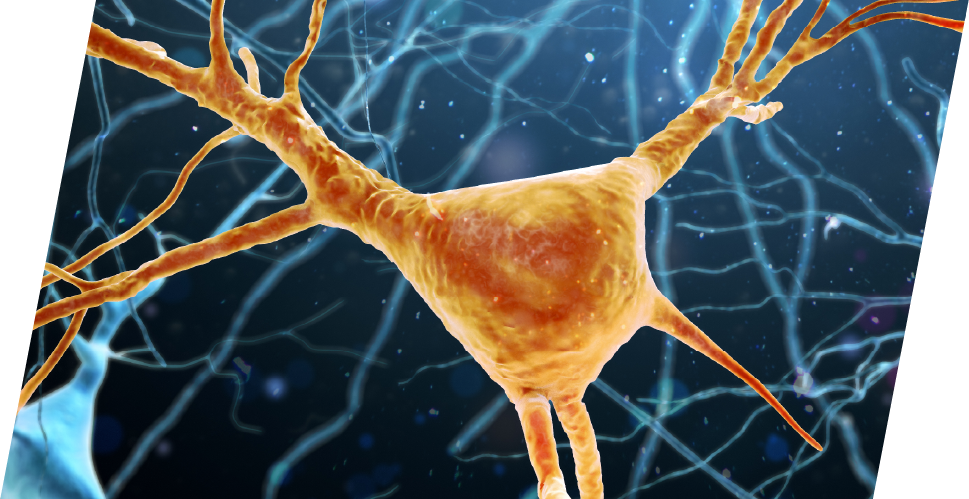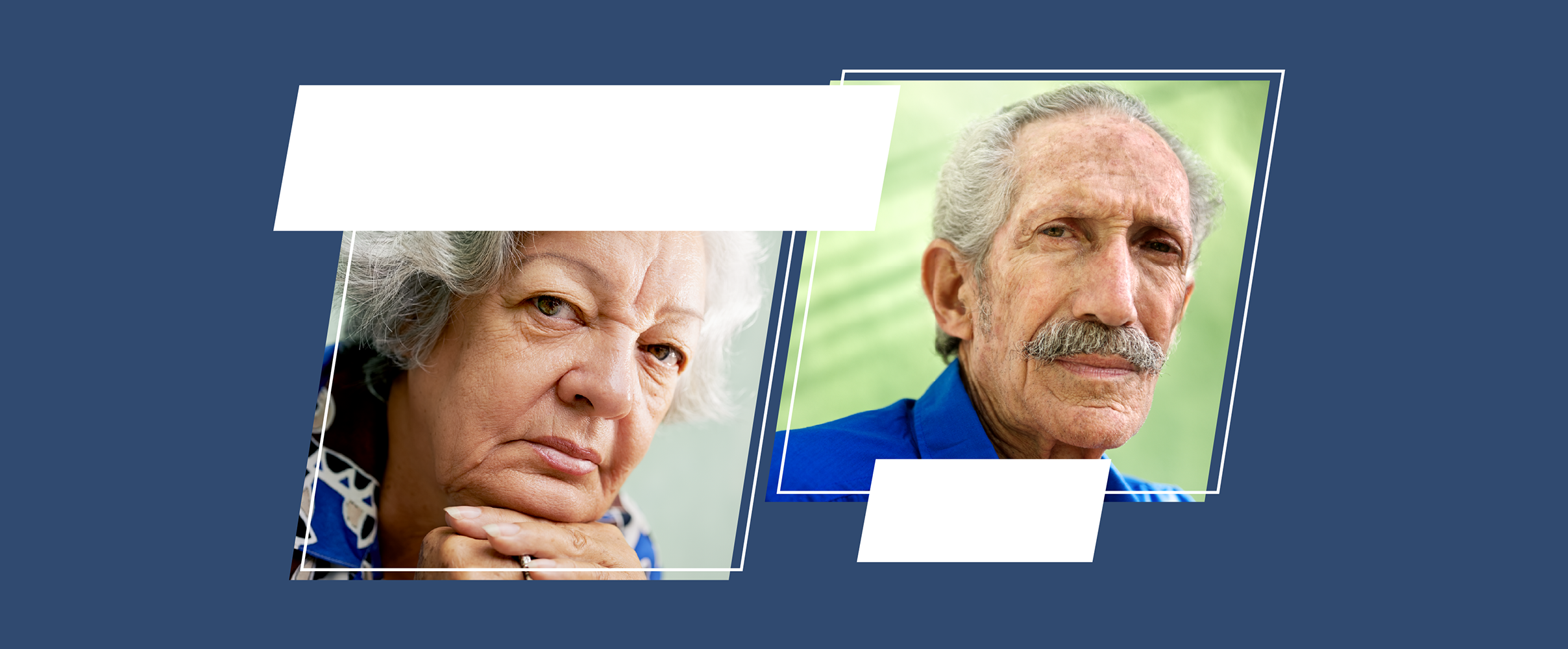Researchers know advancing age and genetic variation can increase susceptibility to Alzheimer’s disease. Some, however, are wondering how a person’s life experiences — specifically culture and language — might contribute.
Postdoc Idaly Vélez-Uribe, Ph.D., and her mentor neuropsychologist Mónica Rosselli, Ph.D., are working to understand how a unique set of such factors shared by many Hispanics might affect their vulnerability, or resistance, to the devastating decline in brain function associated with Alzheimer’s.
In spring 2021, Vélez-Uribe was among four FAU researchers to receive funding from the Florida Department of Health’s Ed and Ethel Moore Alzheimer’s Disease Research Program. These grants support early-stage projects and, in Vélez-Uribe’s case, professional training for new investigators. The two-year, $99,051 grant will aid her goal of becoming an independent researcher.
Decades of intense scientific effort has so far yielded only relatively modest improvements in treatment for Alzheimer’s, an irreversible brain disease that is among the most common causes of death in the United States. Meanwhile, the stakes continue to rise as the American population ages.
Researchers at FAU are attacking the problem from many angles, a handful of which are represented in these grants. For their part, Vélez-Uribe and Rosselli are working on a federally funded project, called the 1Florida Alzheimer’s Disease & Research Center, which recruits patients for long-term studies. This center includes a collaborative network of investigators from the University of Florida, University of Miami, FAU, Florida International University and Mount Sinai Medical Center.
While much previous research has focused on white, non-Hispanic patients at the expense of other groups, half of those enrolled by the center are Hispanic. This representation matters because Hispanics, like African Americans, have higher rates of Alzheimer’s.
What’s more, Hispanics are the most rapidly growing racial or ethnic group in the country.
“Nowadays, we know a lot about what’s going on in the brains of people who develop Alzheimer’s as they age,” said Rosselli, a professor of psychology in the Charles E. Schmidt College of Science. “We’re interested in what the aging process looks like in Hispanic people, both those who develop Alzheimer’s and those who don’t, and how it differs from other ethnic groups.”
In their research, she and Vélez-Uribe look for links between features of the brain, such as the size of certain regions within it, and cognitive function, which could be, for example, the ability to recall the right word, to remember facts or events, or perform activities necessary for daily living. They also investigate how these attributes may vary for older people of different ethnicities or who speak two languages.
Rosselli and Vélez-Uribe suspect that experiences common among Hispanics — such as the stress of resettling in a new country, a culture of family involvement and the ability to speak both English and Spanish — might alter their risk for abnormal cognitive decline and dementia, including that seen in Alzheimer’s. For example, some research suggests that bilingualism has a protective effect on the aging brain, a controversial possibility they are currently investigating.
Vélez-Uribe began researching Alzheimer’s after first studying the neuropsychology of bilingualism in younger people, an interest motivated by her own experience as a Spanish speaker. In her native Colombia, she could not tolerate the crass humor of the cartoon South Park. But her reaction changed when she watched the show in English. “I saw my husband watching it, and I found myself interested. I was even able to laugh at the jokes,” she said.
The experience became the basis for her master’s and doctoral research, which found evidence that bilingual people experience emotions less intensely in their second language. The move to Alzheimer’s felt like a natural continuation of this work in cross-cultural neuropsychology, Vélez-Uribe said. ⬥
Early Detection in Rural Regions
Lun-Ching Chang, Ph.D., an assistant professor and lead biostatistician in the Charles E. Schmidt College of Science, recently earned a $6.6 million grant, to help identify and characterize unique genetic features of Alzheimer’s disease and related dementias in multicultural, underserved rural populations.
In rural regions, people are at a higher risk for Alzheimer’s disease and related dementias, as well as the associated conditions that impact the heart and blood vessels, Chang said.
The research project will compare the frequency of Alzheimer’s and related dementias, particularly conditions arising from stroke and other vascular brain injuries that cause significant changes to memory, thinking and behavior, between older adults living in western rural areas and those dwelling in urban or suburban areas of Palm Beach County. Ultimately, Chang said he hopes to identify the factors which may contribute to health disparities in these two groups.
New Ideas, New Hope
In April, the state’s Ed and Ethel Moore Alzheimer’s Disease Research Program awarded a total of $641,818 to the university. In addition to funding for Vélez-Uribe and Rosselli, the grants are supporting the following research projects:
 Growing evidence suggests that cholesterol deficiency may contribute to aging-associated brain disorders including Alzheimer’s. Qi Zhang, Ph.D., in the Charles E. Schmidt College of Medicine, is investigating whether or not rebalancing brain cholesterol can reduce or even reverse neurological degeneration.
Growing evidence suggests that cholesterol deficiency may contribute to aging-associated brain disorders including Alzheimer’s. Qi Zhang, Ph.D., in the Charles E. Schmidt College of Medicine, is investigating whether or not rebalancing brain cholesterol can reduce or even reverse neurological degeneration.
 Using cells in culture and mice, Howard Prentice, Ph.D., in the Charles E. Schmidt College of Medicine, will investigate the ability of sulindac, a nonsteroidal anti-inflammatory drug, to protect against harmful neurological changes that occur in Alzheimer’s.
Using cells in culture and mice, Howard Prentice, Ph.D., in the Charles E. Schmidt College of Medicine, will investigate the ability of sulindac, a nonsteroidal anti-inflammatory drug, to protect against harmful neurological changes that occur in Alzheimer’s.
 Researchers in the Charles E. Schmidt College of Science, will use fruit flies to explore the mechanisms by which neurological degeneration occurs in Alzheimer’s and to identify how it is controlled at the genetic level.
Researchers in the Charles E. Schmidt College of Science, will use fruit flies to explore the mechanisms by which neurological degeneration occurs in Alzheimer’s and to identify how it is controlled at the genetic level.
Photography by istockphoto.com, Hywards, K_e_n, Echaev-Kon
